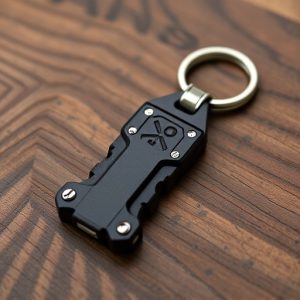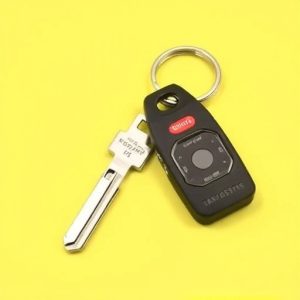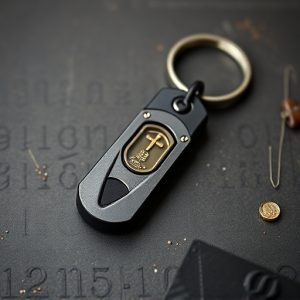Keychain Weapon Permits: State Laws and Safe Handling Guide
Understanding your state's specific keychain weapon permit requirements is crucial before consi…….
Understanding your state's specific keychain weapon permit requirements is crucial before considering self-defense keychains. Laws vary widely, affecting age restrictions, background checks, training, and carrying options (open vs. concealed). Compliance ensures responsible use and avoids severe legal consequences for unauthorized carry. Key terms like "concealed carry" and "permit-less carry" are essential in deciphering these requirements. Thorough understanding of local regulations is vital for safe and legal ownership of keychain self-defense weapons.
“Uncover the legal aspects of self-defense keychains with our comprehensive guide. In today’s world, personal safety is paramount, and understanding the regulations surrounding keychain weapons can be a game-changer. We’ll navigate the complexities of obtaining a keychain weapon permit, exploring state-specific requirements and variations. From key legal definitions to safe handling practices, this article equips you with knowledge to ensure compliance and peace of mind.”
- Understanding Self-Defense Keychain Laws: A General Overview
- Key Legal Definitions and Terms Related to Keychain Weapons
- Requirements for Obtaining a Permits for Self-Defense Keychains
- State-Specific Regulations and Variations in Permit Policies
- Legal Implications and Safe Handling Practices for Self-Defense Keychains
Understanding Self-Defense Keychain Laws: A General Overview
In many states, self-defense keychains are regulated under specific laws that govern the carrying of concealed weapons. Before considering owning one, understanding the local keychain weapon permit requirements is crucial. These regulations vary widely from state to state, with some places having very strict rules while others are more lenient. Keychain weapon permit requirements typically include age restrictions, background checks, and training or certification. Some states may also mandate specific safety features on the keychain device to prevent accidental activation.
Knowing the local laws is essential because carrying a self-defense keychain without proper authorization can result in serious legal consequences. It’s important to note that while these devices offer a sense of security, they should be used responsibly and only as a last resort when facing an imminent threat. Staying informed about your state’s keychain weapon permit requirements will ensure you remain within the law and promote safe self-defense practices.
Key Legal Definitions and Terms Related to Keychain Weapons
In the context of keychain weapons, understanding key legal definitions is essential to navigating the keychain weapon permit requirements across states. A “keychain self-defense weapon” typically refers to a small, compact device designed for personal protection, often resembling a key chain or fob. These devices can range from simple pepper spray or emergency alarm keys to more complex tools like tactical flashlights or folding knives. The legality of carrying such weapons varies significantly from state to state, with some permitting their open carry and others restricting them to concealed carry with appropriate permits.
Key terms like “concealed carry,” “open carry,” and “permit-less carry” are crucial to deciphering the legal landscape. Concealed carry means having the weapon hidden from plain view, while open carry allows for the display of the device. Permit-less carry refers to states that do not mandate a permit for certain types of self-defense weapons, including some keychain items. It’s important to note that even within these categories, there may be specific requirements regarding age, licensing, and registration. Therefore, understanding the nuances of local laws is vital before considering the acquisition of a keychain self-defense weapon.
Requirements for Obtaining a Permits for Self-Defense Keychains
In many jurisdictions, obtaining a permit for carrying a keychain weapon is subject to specific legal requirements. These requirements vary from state to state, but typically involve a combination of background checks, training, and application processes. Individuals seeking to carry a keychain self-defense tool must first understand their local laws and the specific keychain weapon permit requirements.
The process usually begins with a thorough background check to ensure the applicant has no criminal history or other disqualifying factors. Some states may also mandate completing a certified self-defense training course, which educates individuals on safe handling and responsible use of their keychain defense device. Once these foundational steps are met, applicants submit a formal application to the relevant law enforcement agency, providing personal information and details about the specific keychain weapon they intend to carry.
State-Specific Regulations and Variations in Permit Policies
Each state in the US has its own set of regulations and laws governing the possession and use of keychain weapons, or personal defense keychains. When it comes to legal requirements for keychain weapon permit applications, these variations can be a bit tricky to navigate. Some states have clear and straightforward processes, while others offer more leeway, resulting in diverse permit policies.
For instance, certain states may require an application form filled out by the individual seeking the permit, along with proof of identity and possibly a background check. Other states might demand additional documentation, such as training certificates or evidence of self-defense needs. Some even have specific criteria for age limits, making it crucial to understand your state’s keychain weapon permit requirements before carrying one legally.
Legal Implications and Safe Handling Practices for Self-Defense Keychains
Carrying a keychain weapon for self-defense comes with legal implications that vary greatly by state. Before equipping yourself, it’s crucial to understand local laws regarding keychain weapon permit requirements. Some states explicitly forbid the open or concealed carrying of any type of weapon, including keychains designed for self-defense. Others have specific regulations for hidden carry weapons, often requiring permits and adherence to strict safety protocols.
Safe handling practices are paramount regardless of legality. Always store your keychain weapon in a secure location, away from children and unauthorized individuals. Ensure you’re familiar with the mechanism and its safety features. Regularly inspect the device for any signs of malfunction or damage. Remember, responsible ownership includes knowing local laws and handling these tools with the utmost care to ensure both personal safety and compliance.
When it comes to self-defense keychains, understanding the legal requirements is essential. Each state has its own set of rules and regulations regarding keychain weapon permits, making it crucial to research and adhere to local laws. By familiarizing yourself with key legal definitions, obtaining necessary permits, and following safe handling practices, you can ensure your rights are protected while staying within the boundaries of the law. Remember, knowledge is power when it comes to self-defense, and being informed about keychain weapon permit requirements can make a significant difference in emergency situations.


